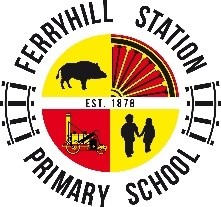Our SEN Provision
There are four broad areas of special educational need, these are:
- Communication and Interaction
This area of need includes children with Autism Spectrum Condition and those with Speech, Language and Communication Needs - Cognition and Learning
This includes children with Specific Learning Difficulties, Moderate Learning Difficulties, Severe Learning Difficulties and Profound and Multiple Learning Difficulties - Social, Emotional and Mental Health Difficulties
This includes any pupils who have an emotional, social or mental health need that is impacting on their ability to learn - Sensory and/or Physical Difficulties
This area includes children with hearing impairment, visual impairment, multi-sensory impairment and physical difficulties.
The kinds of SEN that are provided for:
At Ferryhill Station Primary School, we have experience of supporting children and young people with a wide range of need including:
The school provides data on the levels and types of need to the Local Authority. This is collected through the school census.
Our approach to teaching children & young people with SEN
Inclusive education means supporting all pupils to learn, contribute and participate in all aspects of school life alongside their peers. Our curriculum includes, not only the formal requirements of the Early Years Foundation Stage Curriculum / National Curriculum, but also a range of additional opportunities to enrich the experiences of all pupils.
The Curriculum also included the social aspects that are essential for lifelong learning, personal growth and development of independence.
How we adapt the curriculum and learning environment for children & young people with SEN
We adapt the curriculum and learning environment for pupils with SEN:
More details on how we adapt information, our environment and curriculum can be found in the Accessibility Plan which you ca find in the School Policies section of our website.
How we identify, assess and review children with special educational needs
Most children and young people in mainstream schools will have their special educational needs met through good classroom practice. This is called Quality First Teaching.
Early Identification of Need
In deciding whether to make special education provision to support educational, social, physical or emotional needs, we:
SEN Support
Where a pupil is identified as having a special educational need we follow a graduated approach which takes the form of cycles of “Assess, Plan, Do, Review”.
This means that we will:
- Assess a child’s special educational needs
- Plan the provision to meet your child’s aspirations and agreed outcomes
- Do put the provision in place to meet those outcomes
- Review the support and progress
As part of this approach every child with SEN will have an individualised SEN Support Plan that describes the child’s needs, outcomes & provision to meet those needs. Parents/carers and child/YP (where appropriate) views are integral to the this process.
A small percentage of children and young people with significant and/or complex needs may require an assessment that could lead to an Education, Health and Care Plan.
For more detailed information see the Local Offer
Details of Identification and Assessment of Pupils with SEN
Provide information on:
- Assessments that are used to identify SEN and the area/s of need
- Systems that are in place to record information/assessments
- How progress is assessed
- How you respond to parental concerns
The questions below provide some prompts to assist settings to give a full picture of their provision, approaches, curriculum and learning environment.
For further information please view or download our Accessibility Plan which can be found in the School Policies section of our website.
How we evaluate the effectiveness of SEN Provision
We continuously ensure the provision has a positive impact on the outcomes for all of our children/young people. We do this in a variety of ways, including:
- Robust evaluation of policy and practice
- Book scrutinies
- SENCO/SLT/Governor monitoring
- Learning walks
- Performance management
- Other
